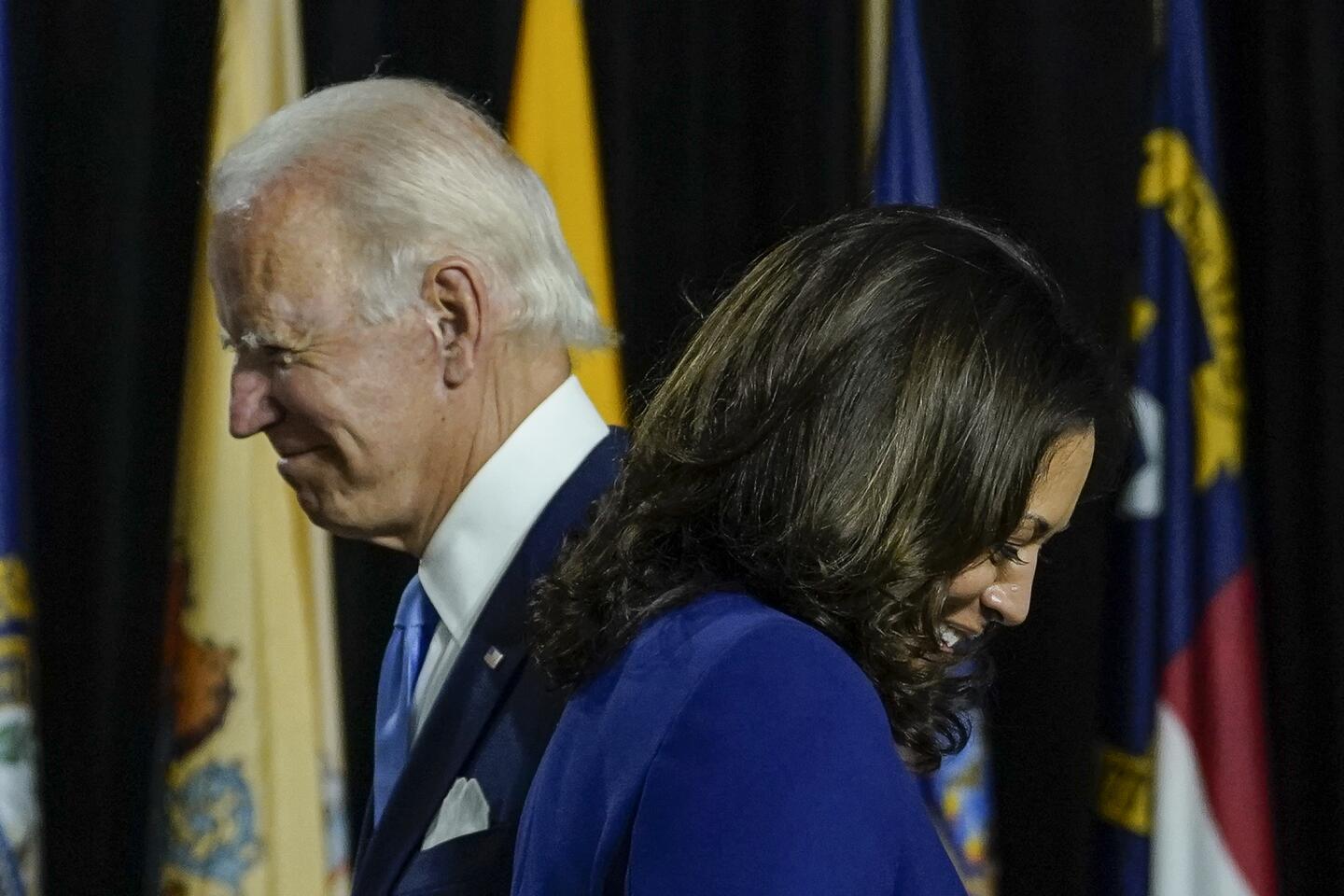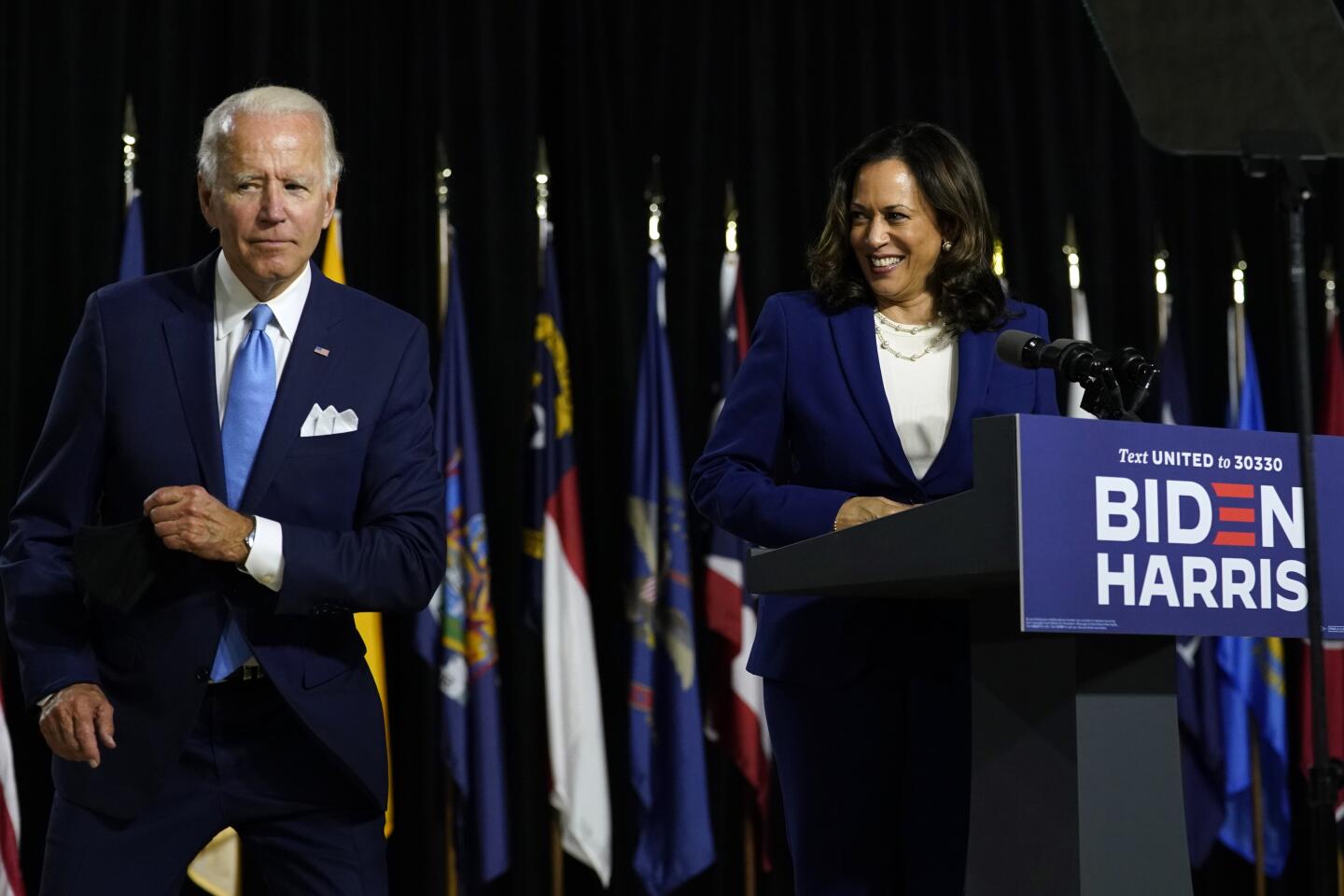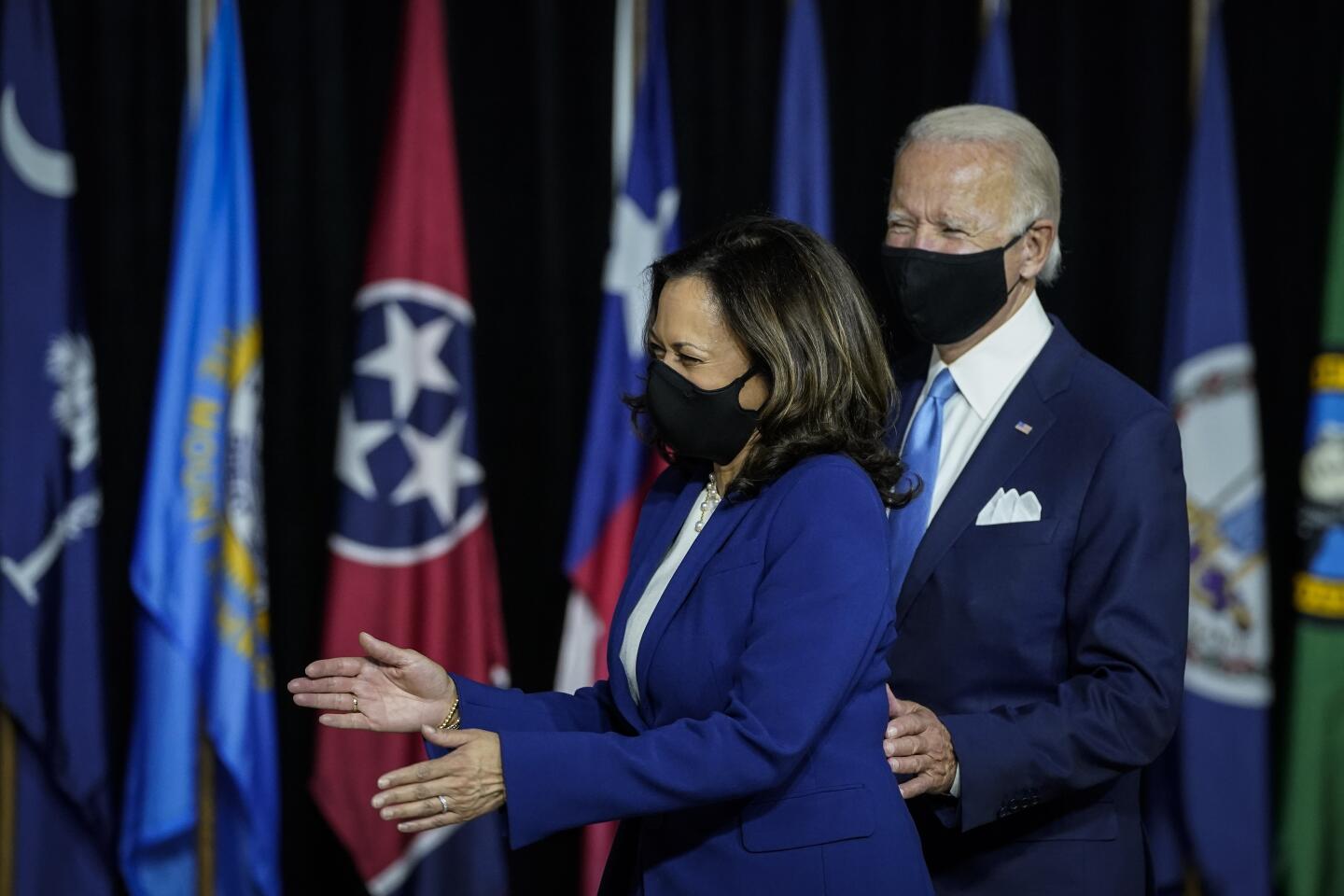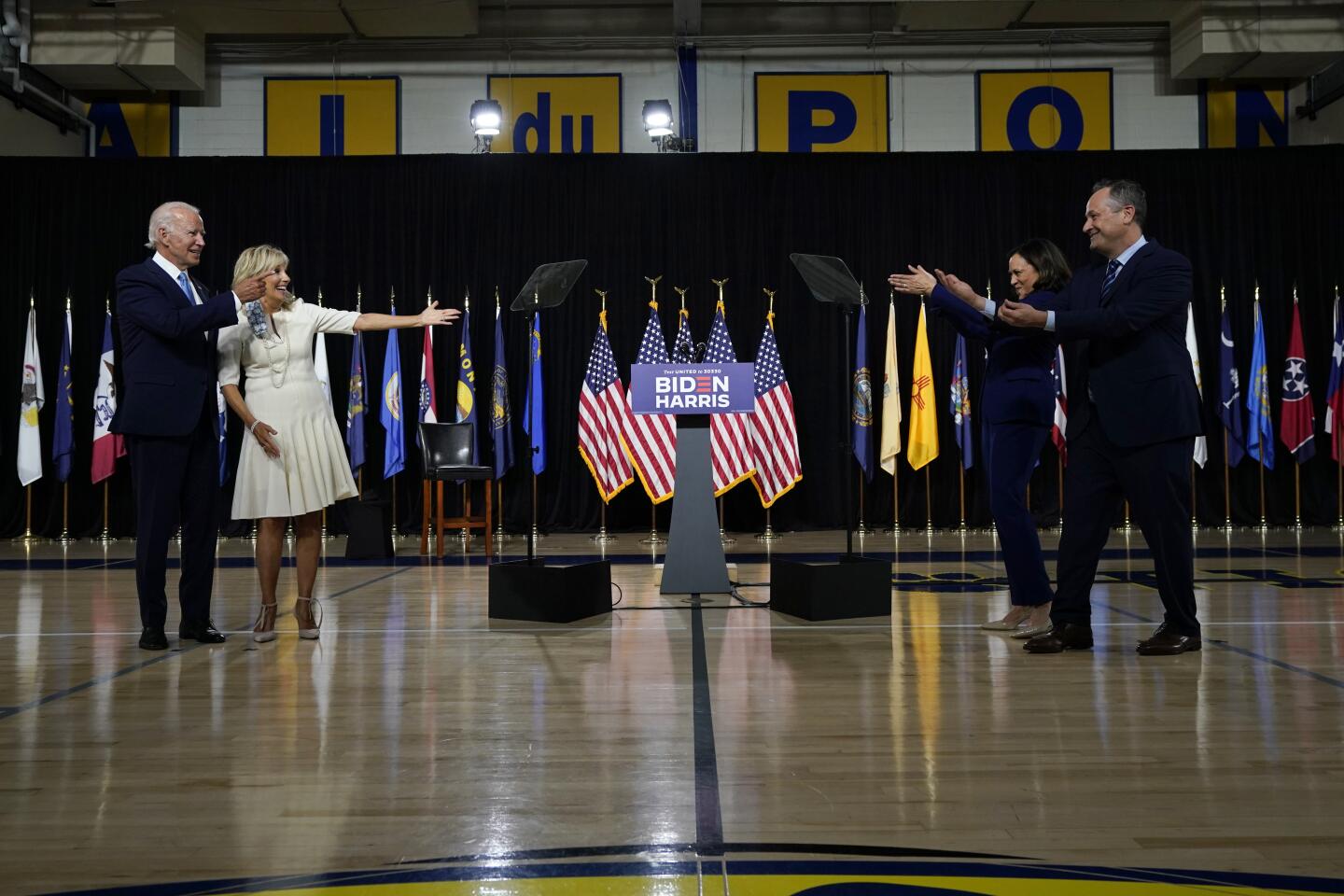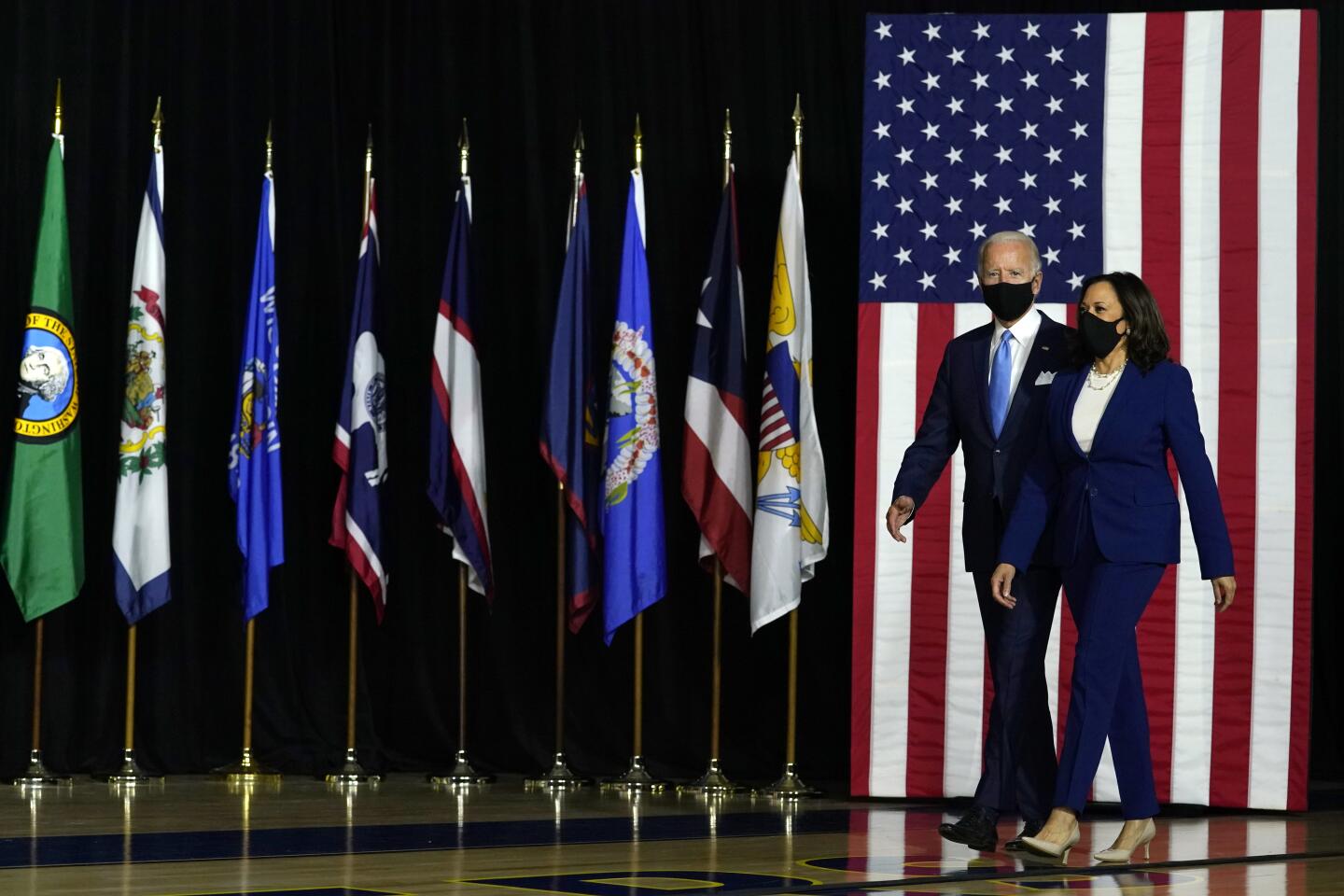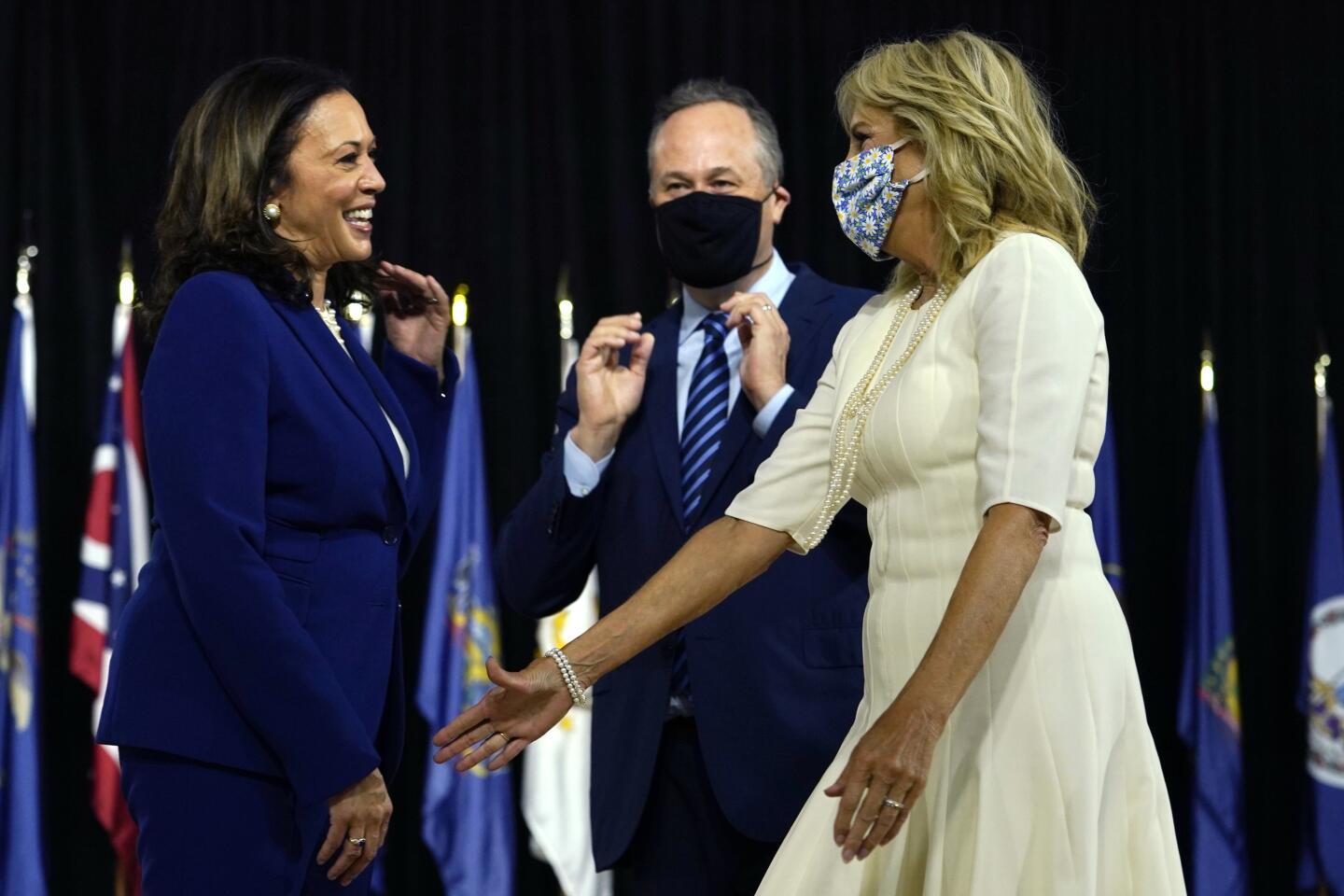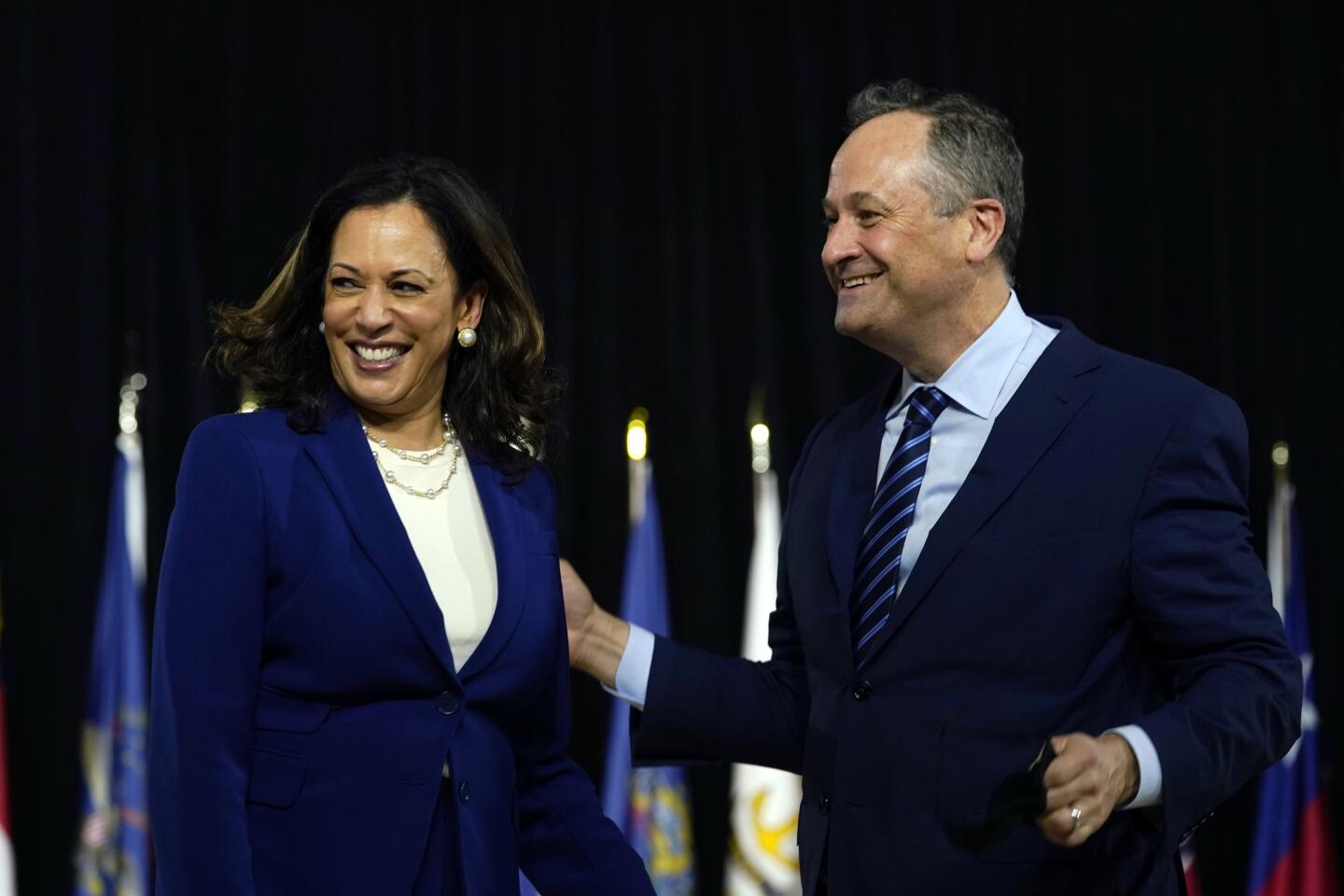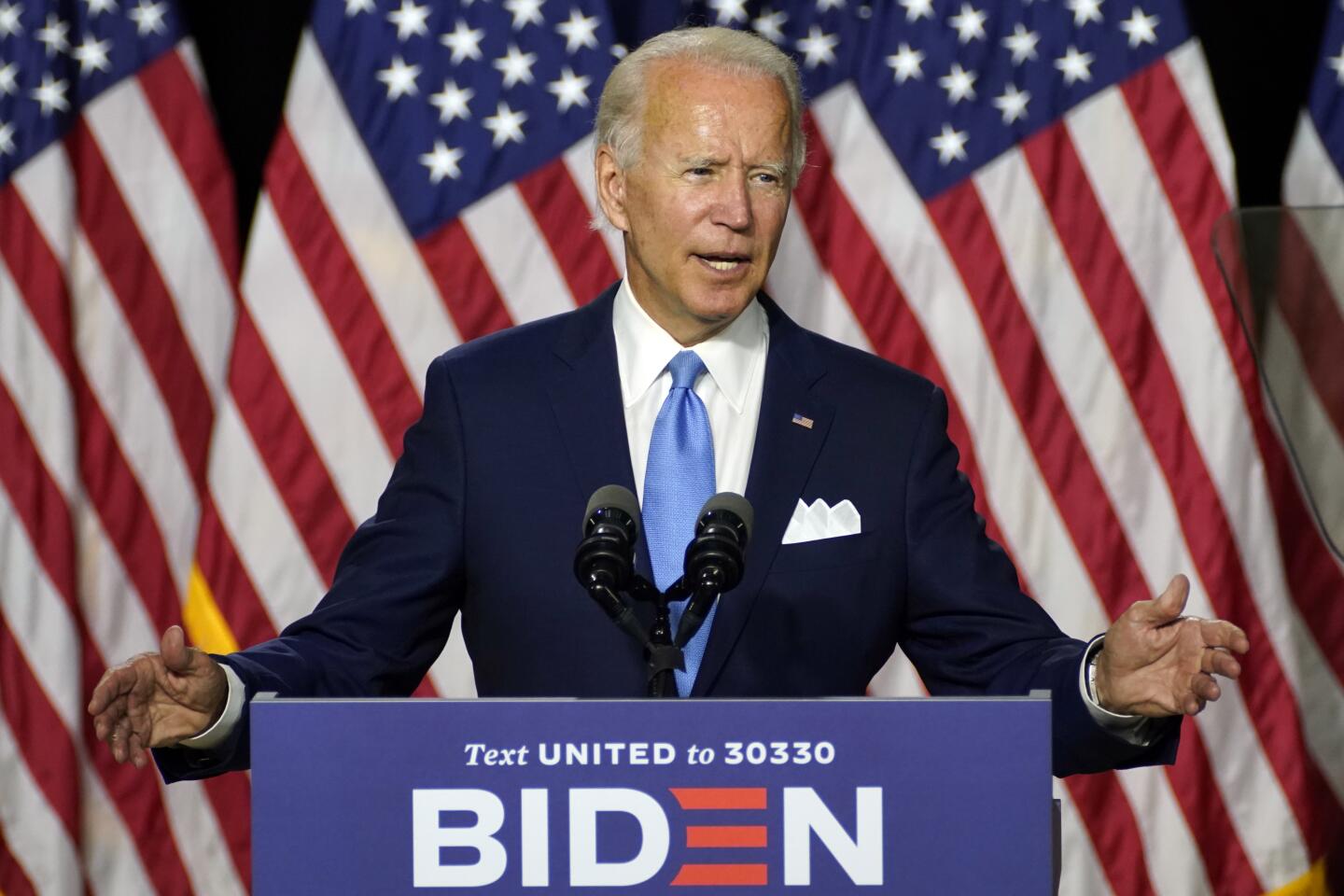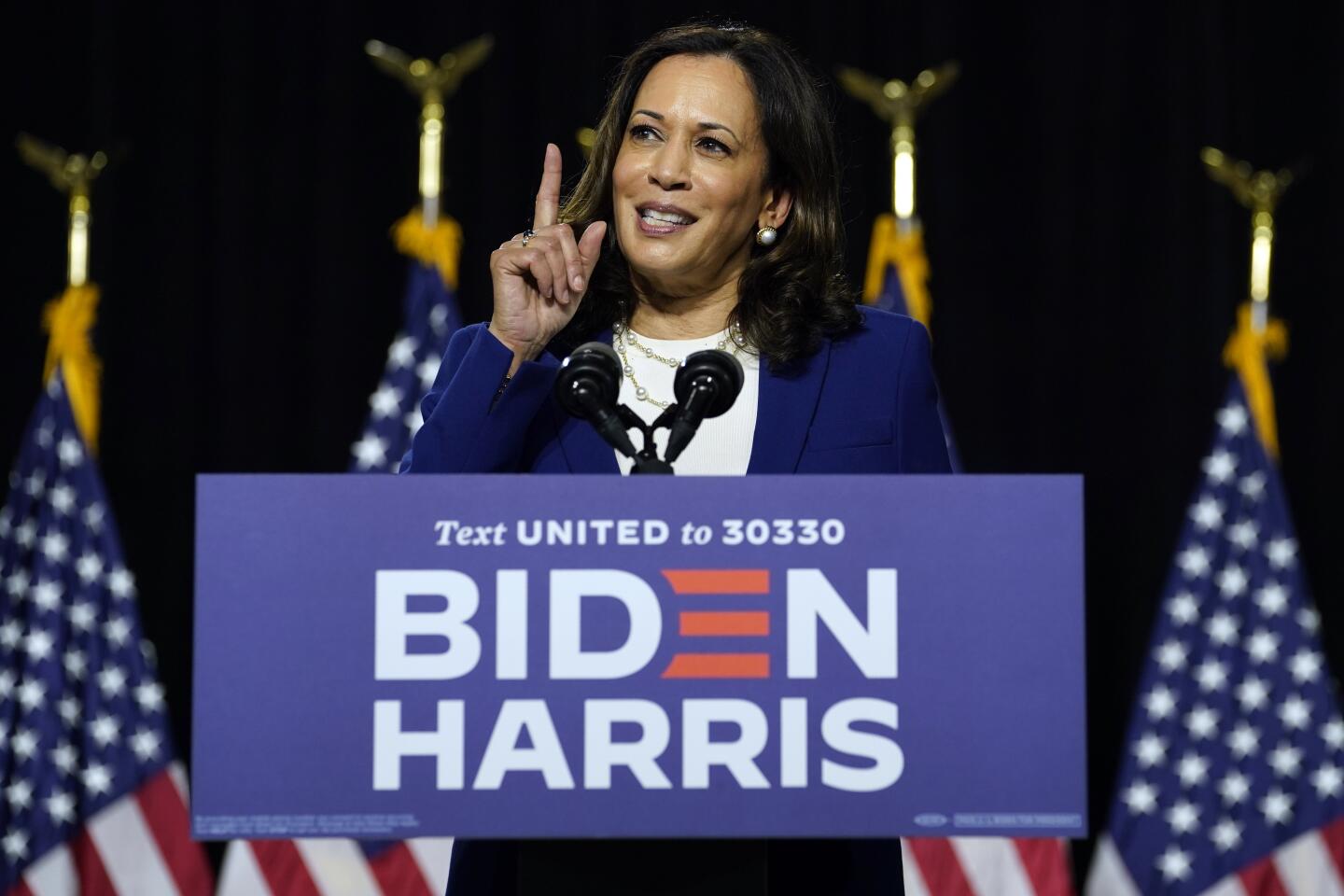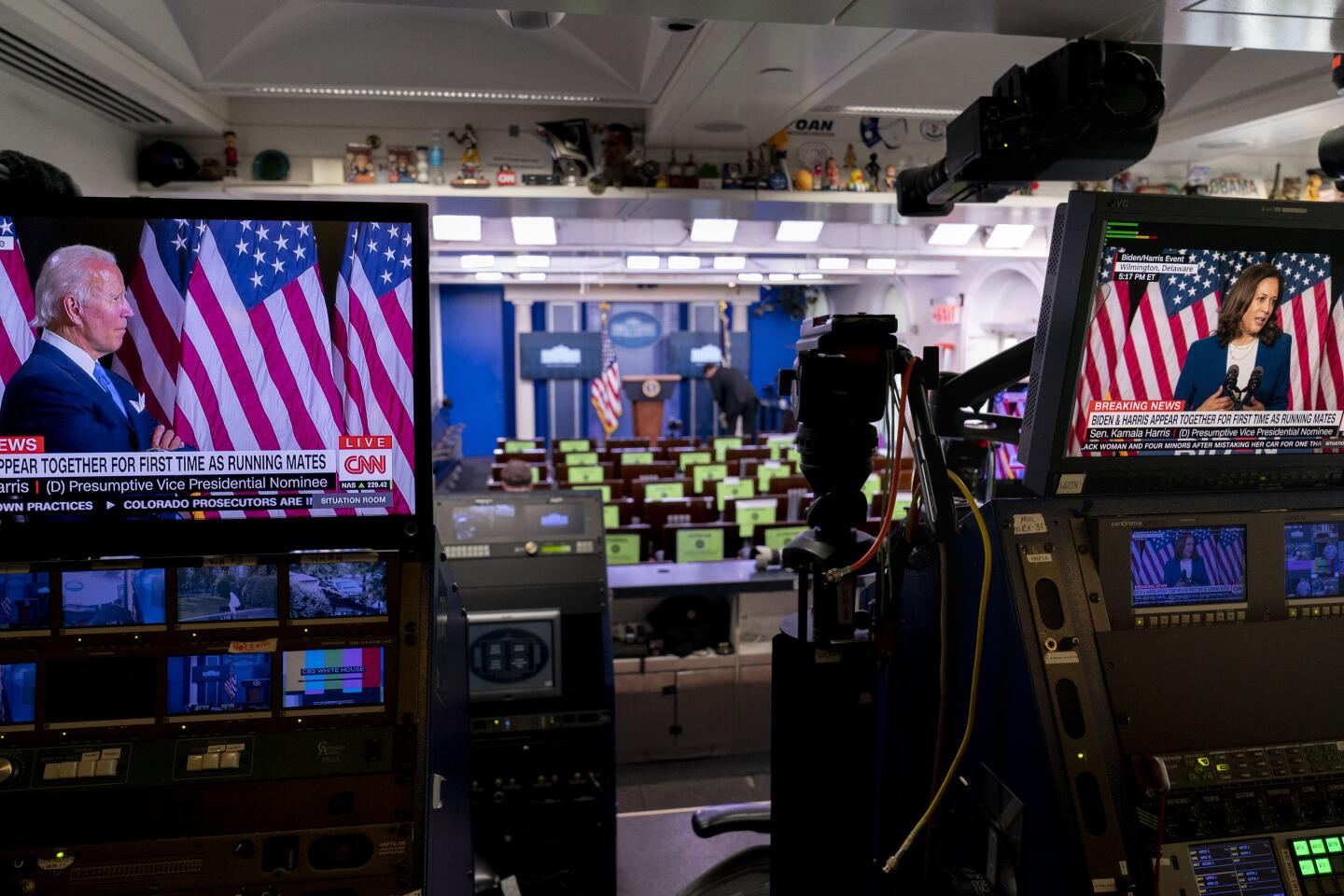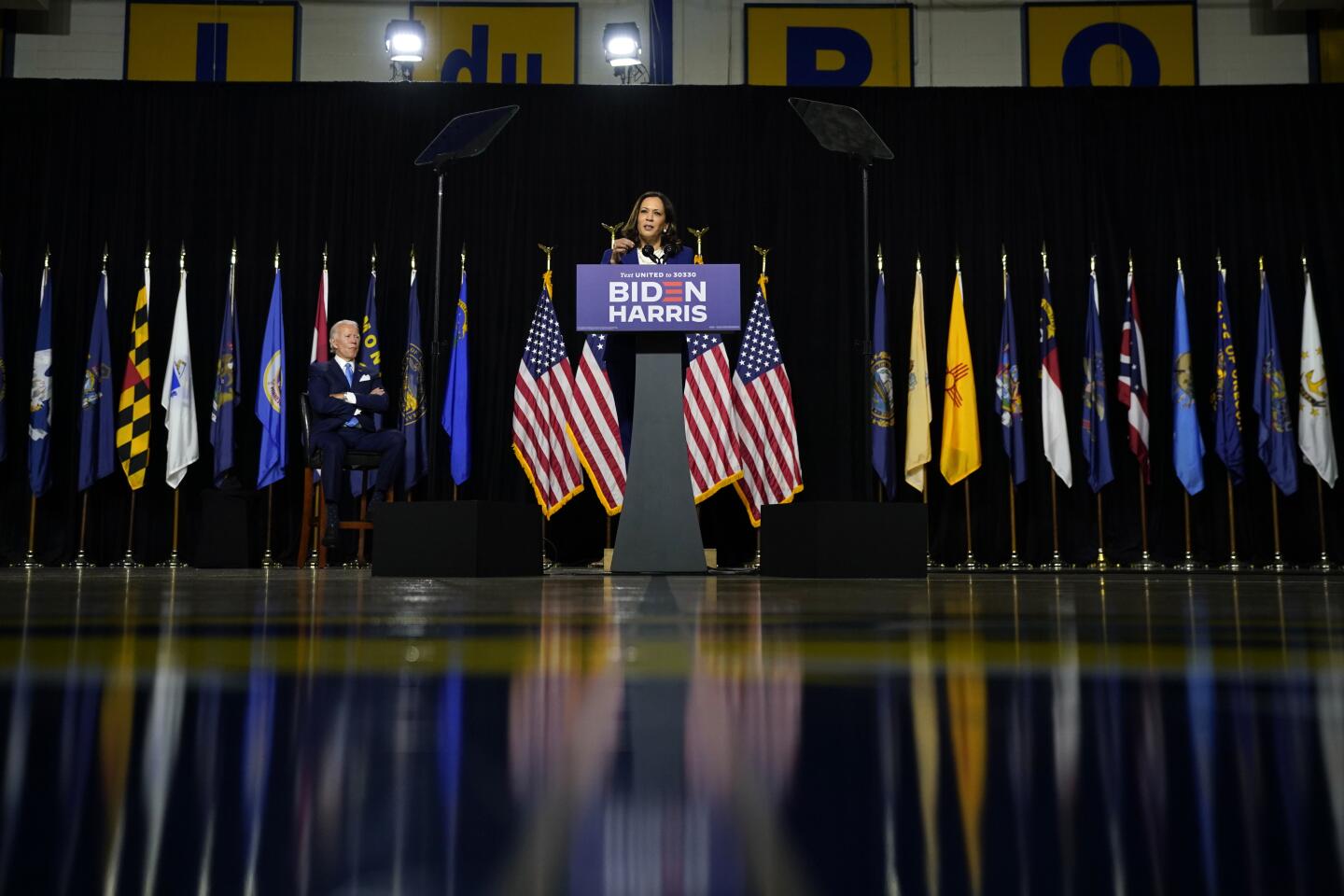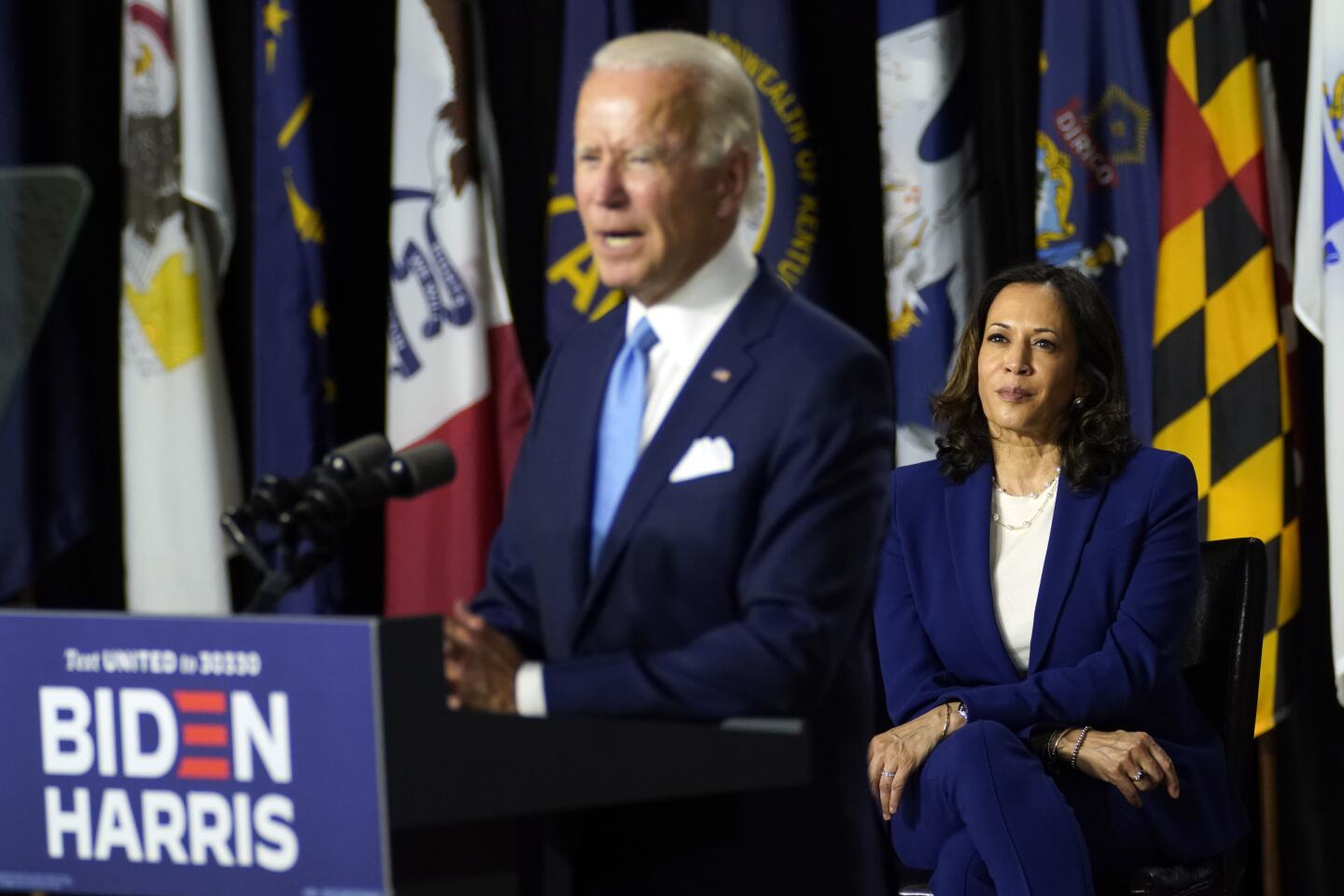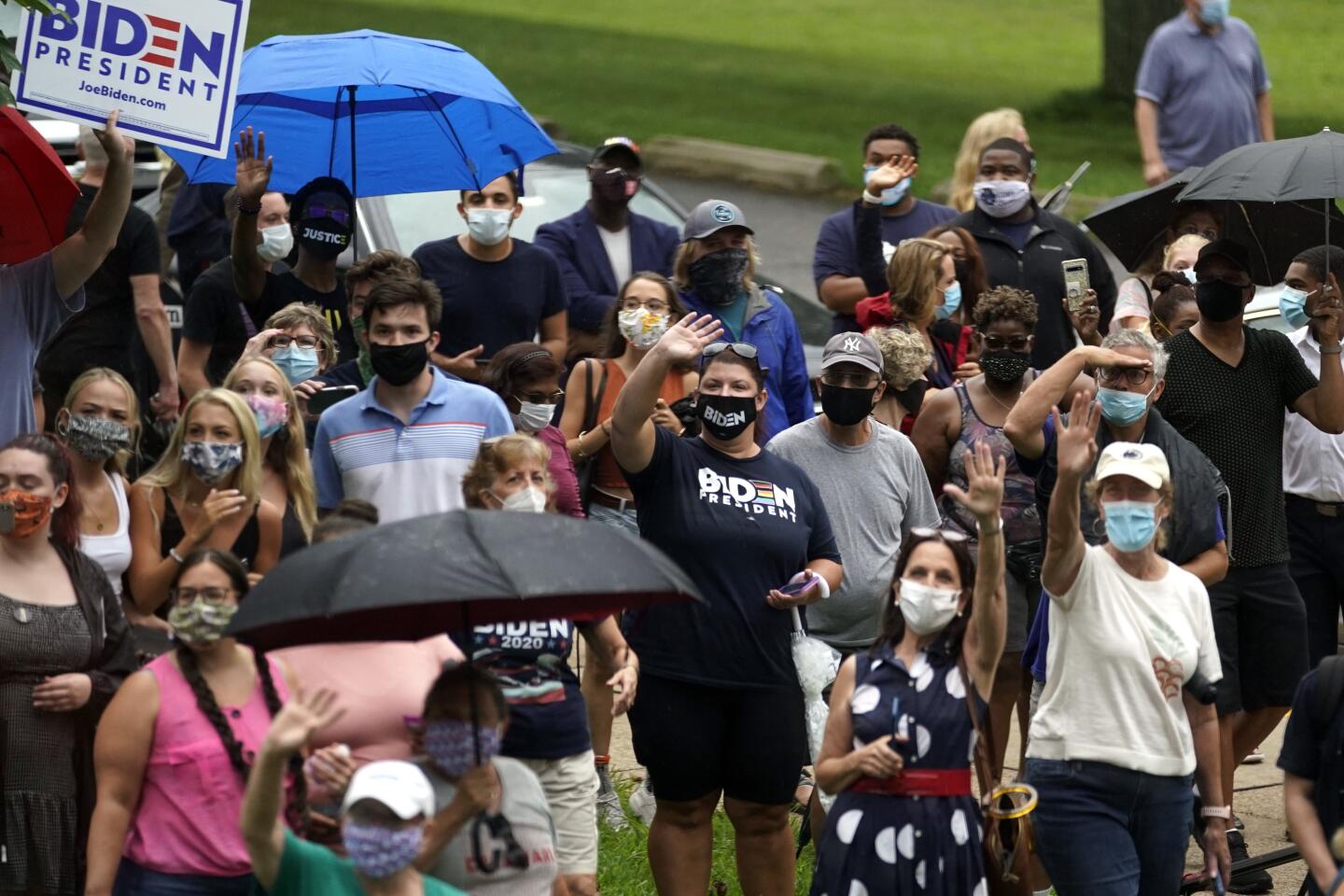Column: ‘Safe’ is not the word to describe Kamala Harris. Here’s why
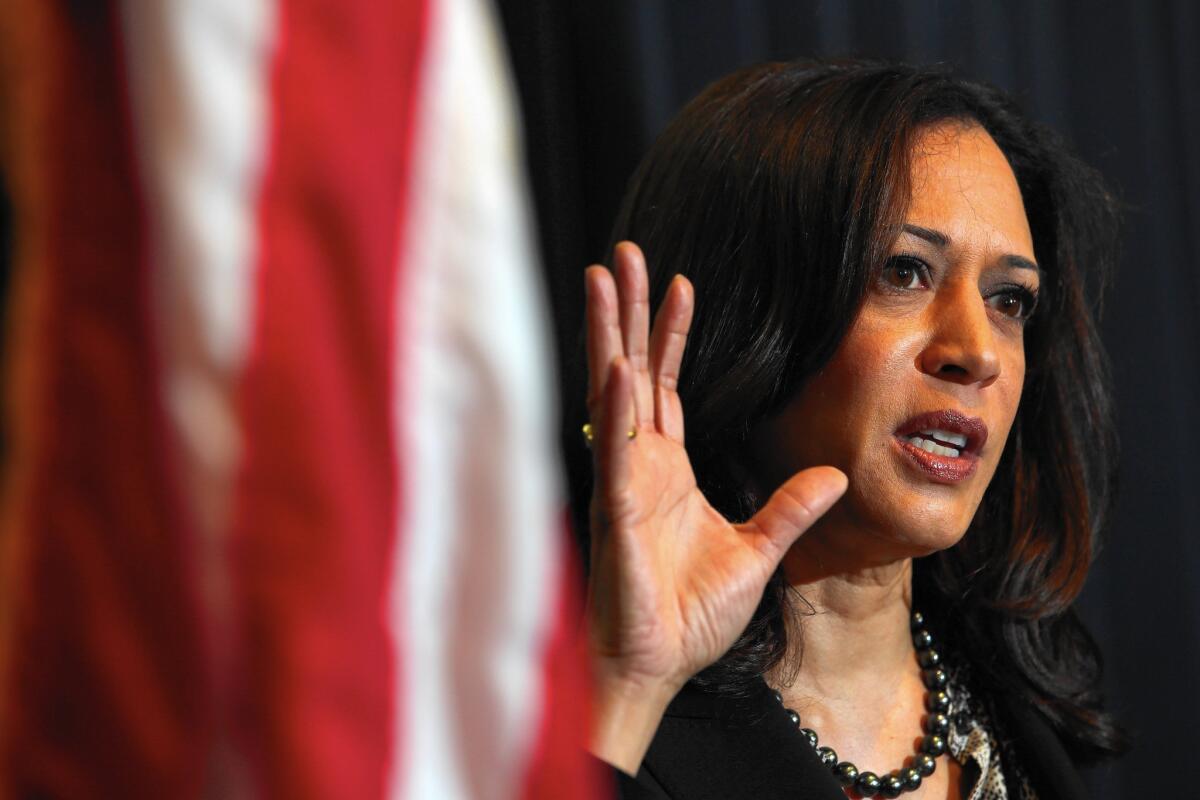
- Share via
Can someone please tell me why so many people are describing Joe Biden’s history-making choice of Sen. Kamala Harris as his running mate in the 2020 presidential election as “safe”?
“Bold,” “exciting,” “groundbreaking,” even “controversial” are all terms that come more quickly to mind — Harris is a woman, Black, the daughter of immigrants from India and Jamaica, a stepmother and married to a white guy. Characteristics which, taken separately or in combination, she shares with precisely none of the previous 48 previous American vice presidents.
Like Elizabeth Warren and Alexandria Ocasio-Cortez, she comes from the growing school of “I really do not have time for your bull” female politicians, which sits well with some and not so much with others.
Over the course of her career as a prosecutor and California’s attorney general, she has made decisions that alienated both progressives and conservatives. As a senator, she has been a fierce and vocal opponent of the Trump administration, ruthlessly grilling attorneys general Jeff Sessions and William Barr and Supreme Court nominee Brett Kavanaugh. During her 2019 campaign for the Democratic presidential nomination, her biggest moment on the debate stage came when she criticized Biden for his willingness to work with segregationists against busing to integrate schools.
In other words, Kamala Harris is many things, but the label “safe” — with its subtext of “conventional” — seems a diminishment of each and every one.
In a country now defined by catastrophe (literally, via daily charts of state and county COVID-19 infection and death rates), with exacerbated preexisting conditions of racial and class division and increasing global isolation, “safe” can sound like compliment. We’d all like to feel safe right now, and Biden has been leveraging his “steady the boat” mien for months now.
In the running mates’ first joint appearance, both hew toward the party’s center, disappointing the left, but a possible general election plus.
And, as many have pointed out, the lack of uproar can be construed as progress; people are seeing her for who she is rather than for what she represents. Despite all the “first ever” boxes she checks, Harris is a career politician; her experience on the national stage and centrist inclination can make Biden’s choice seem, the inevitable Twitter storm notwithstanding, a bit boring.
In a good, “we’ve come a long way” sense.
But have we? Have we really come a long way?
I know everyone loves “Hamilton” and Beyoncé’s “Black Is King” and, yes, there have been loads of white folks showing up at the recent Black Lives Matter protests. But there have been a lot of “All Lives Matter” protests as well, and a quick scan of Congress and the White House reminds us that the highest offices of federal government, including the elected bits, remain overwhelmingly white and male.
Have we really come so far that the prospect of Vice President Kamala Harris seems possible enough to be taken for granted?
In seeing all the muted “exciting but safe” media coverage, it’s difficult not to think back to a time — why, it was just four years ago — when so many considered Hillary Clinton’s election an inevitable milestone. Historic, yes, but inevitable. So much so that early complaints about the sexism displayed by some Bernie Sanders supporters, many Trump supporters and more than a few members of the media (for the record, Clinton smiled plenty) were dismissed as absurd echoes of a distant time.
It turned out that the ceiling was made not of glass, but reinforced concrete.
Except they were not. Sexism is alive and well, and if it was not the only reason Clinton was not elected our president in 2016, it was a major factor.
Racism is even more widely tolerated — what else could possibly be driving all the “let’s defend the indefensible” arguments over police brutality, blatant political gerrymandering and (and it really defies all non-racist rationality) the legitimacy of the Confederate flag? National pride? Please.
So I think we need to be careful about downplaying Biden’s choice of Harris with the word “safe.” For one thing, she is more than 20 years younger and much more dynamic than he, so unlike other presidential candidates we could name, he’s not looking for a neutral backdrop, which is courageous enough.
And Harris is no yes-woman. Last spring, when multiple women accused Biden of inappropriate touching, she said, “I believe them, and I respect them being able to tell their story and having the courage to do it” — and later had no problem calling out Biden, who prides himself on the work he has done for civil rights, on his onetime opposition to busing, in a very personal way.
“There was a little girl in California who was part of the second class to integrate her public schools, and she was bused to school every day,” she said in one of the Democratic debates’ most memorable moments. “That little girl was me.”
In what version of this politically divided country is a woman of color who is known to speak her mind being named a major-party candidate for vice president considered “safe”? Because such a person has simply never existed before in our version.
Was her selection a politically necessary step? Perhaps. But so was the Declaration of Independence. From which people like Kamala Harris were excluded. Just like they’ve been excluded from the vice presidency and the presidency.
She may have been the most obvious choice on Biden’s short list, but that short list was pretty damn extraordinary to begin with. And having Harris on the presidential ticket is nothing short of revolutionary.
More to Read
The biggest entertainment stories
Get our big stories about Hollywood, film, television, music, arts, culture and more right in your inbox as soon as they publish.
You may occasionally receive promotional content from the Los Angeles Times.
